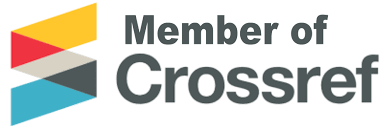Peran Mata Kuliah Etika Profesi Terhadap Perkembangan Perilaku Etis Mahasiswa
Abstract
Full Text:
PDF (Bahasa Indonesia)References
Aini, Q., dkk. (2019) Analisis Kurikulum Dan Lingkungan Akademik Terhadap Tingkat Pemahaman dan Kepekaan Mahasiswa Terkait Tindakan Tidak Beretika Dalam Bisnis. E-JRA, 8(6), 63-75.
Arnold, V., and Sutton, S.G. (1997) Behavioral Accounting Reseearch: Foundation and Frontiers. Amerika Serikat: American Accounting Association.
Asriati, A dan Hidayat, H. (2018) Perilaku Fraud Mahasiswa Dan Persepsinya Terhadap Aspek-Aspek Umum Etika Bisnis dan Tujuan Pendidikan Etika Profesi Akuntansi Ditinjau Dari Jenis Kelamin. Journal of Applied Managerial Accounting, 2(1), 71-81.
Bertens, K. (2000) Pengantar Etika Bisnis. Yogyakarta: PT. Kanisius.
Bertens, K. (2007) Etika. Jakarta: PT. Gramedia Pustaka Utama.
Belkaoui, A. (1989) Behavioral Accounting. Amerika Serikat: Greenwood Press.
Duska, R., et.al. (2011) Accounting Ethichs. Wiley-Blackwell.
Ghozali, I. (2016) Aplikasi Analisis Multivariate Dengan Program IBM SPSS 23. Semarang: Badan Penerbit Universitas Diponegoro.
Laily, N., dan Anantika, N.R. (2018) Pendidikan Etika dan Perkembangan Moral Mahasiswa Akuntansi. Jurnal Ilmiah Akuntansi dan Bisnis, 13(1), 11-19.
Morgan, R.B. (1993) Self and Co-Worker Perceptions of Ethics and Their Relationship to Leadership and Salary. Academy of Management Journal. 36: 200-214.
Pratama, A., Helmy, H., dan Mayar, A. (2020) Pengaruh Usia dan Religiusitas Terhadap Keyakinan Etis Pada Akuntan. Jurnal Eksplorasi Akuntansi (JEA), 2(1), 2407-2427.
Sugiyono. (2016) Metode Penelitian Kuantitatif, Kualitatif, dan R&D. Bandung: Alfabeta.
Sujarweni, V.W. (2015) Metodologi Penelitian Bisnis & Ekonomi. Yogyakarta: Pustaka Baru Press.
Wijayanti, D.M., Kasingku, F.J., dan Rukmana, R. (2017) Dilema Etika pada Akuntan – Sebuah Studi Persepsi Mahasiswa Akuntansi. Jurnal Dinamikan Akuntansi dan Bisnis (JDAB). 4(2), 159-172.
Wulandari., Rispantyo., dan Kristianto, D. (2019) Pengaruh Gender, Ethical Sensitivity, dan Locus of Control Terhadap Perilaku Etis Mahasiswa Akuntansi. Jurnal Akuntansi dan Sistem Teknologi Informasi, 15(1), 71-81.
DOI: https://doi.org/10.35314/.v1i2.1642
Refbacks
- There are currently no refbacks.
Copyright (c) 2020 Susi Chairani, Nurhazana Nurhazana
This Journal has been listed and indexed in :
Pusat Penelitian dan Pengabdian kepada Masyarakat
 Politeknik Negeri BengkalisÂ
Jl. Bathin alam, Sungai Alam Bengkalis-Riau 28711Â
E-mail: iakp@polbeng.ac.id
www.polbeng.ac.id











